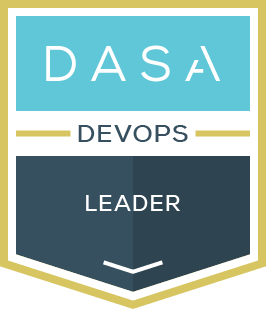The journey from transactional to transformational leadership, and ultimately to transcendent leadership, marks the evolution of effective and empathetic leadership. The principles of Transact, Transform, and Transcend, as outlined by John Ruppel and Dr. Ken Russell, provides a comprehensive framework for leaders aspiring to cultivate thoughtful leadership.
Understanding the Three T’s of Leadership
Transactional leadership is the starting point for many leaders. It involves managing tasks, responsibilities, and relationships through transactions—essentially, the give-and-take that keeps the organization functioning. This type of leadership is essential for establishing clear expectations, maintaining order, and ensuring that basic operational needs are met.
As leaders mature, they transition into transformational leadership. This involves inspiring and motivating the team to achieve more than they initially thought possible. Transformational leaders focus on change, innovation, and team development. They encourage their team members to take ownership of their roles and to think creatively about solving problems.
Transcendent leadership goes beyond transformation by incorporating a deep sense of awareness, empathy, and intuition. Transcendent leaders are able to rise above the daily grind, see the bigger picture, and make decisions that reflect a holistic understanding of the organization and its environment.
Becoming a Thoughtful Leader
To become a thoughtful leader, one must integrate the principles of Transact, Transform, and Transcend into their daily practices. A thoughtful leader listens, empathizes, absorbs, and discerns—the key components of effective leadership encapsulated in the acronym LEAD.
LEAD: The Core of Thoughtful Leadership
- Listens: Pay attention not just with your ears, but with your heart and intuition. Understand the verbal and non-verbal cues from your team.
- Empathizes: Walk in the shoes of your team members. Understand their perspectives and challenges.
- Absorbs: Take in all information and experiences around you. Synthesize these to make informed decisions.
- Discerns: Use wisdom and insight to make subtle but impactful changes that guide the team towards success.
Making a DENT in Leadership
Creating significant impact as a leader can be thought of as making a DENT:
- Disorient: Challenge existing assumptions and create situations that make your team rethink their approaches.
- Extend: Build on existing ideas and innovate new solutions.
- Navigate: Guide your team through changes and challenges, providing a clear path forward.
- Transform: Achieve substantial and meaningful change within the organization.
Metrics for Thoughtful Leadership: CANDID
To evaluate and enhance leadership effectiveness, the CANDID framework provides key metrics:
- CAN: Can you lay your head on the pillow at night knowing you led with integrity and compassion?
- DID: Did you have to apologize for your actions or words? Aim to minimize the need for apologies by leading thoughtfully.
Leading with Empathy
Empathy can be developed through both experiential learning and self-reflection, allowing leaders to better understand and support their teams. Leaders can practice empathy by engaging in active listening, fully paying attention to the speaker and acknowledging their feelings and perspectives. Compassionate communication is also key, using supportive and understanding language. Additionally, fostering an environment that encourages open dialogue helps team members feel safe to share their thoughts and concerns, promoting a culture of trust and collaboration.
Utilizing Data Wisely
Transforming data into actionable insights is essential for effective leadership. Leaders should thoroughly analyze data, going beyond surface-level information to uncover deeper insights. It’s equally important to apply wisdom and intuition when interpreting data, ensuring that decisions are meaningful and informed. Finally, leaders must remain flexible and adapt strategies based on new insights and changing circumstances, allowing for continuous growth and improvement.
Conclusion
Becoming a thoughtful leader involves a continuous journey of growth and development, from transactional tasks to transformational initiatives and ultimately to transcendent insights. By integrating the principles of Transact, Transform, and Transcend, and by applying frameworks like LEAD, DENT, and CANDID, leaders can foster a more empathetic, insightful, and impactful leadership style. This journey not only enhances personal leadership, but also drives organizational success and cultivates a positive, supportive culture.


DASA DevOps Leader
Helps leaders understand leadership in the context of DevOps, discusses leadership development models, building teams, and transforming the organisation.
